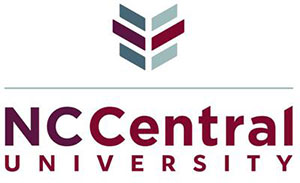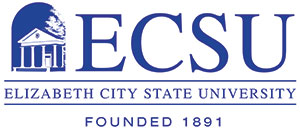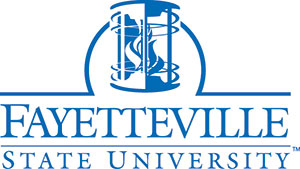Historically Minority-Serving Institutions Research Grant Program
In 2021, the North Carolina General Assembly appropriated $500,000 for the Collaboratory to establish a research grant program for institutions identified as Historically Minority-Serving Institutions (HMSIs) by the UNC System (ECSU, FSU, NCA&T, NCCU, UNCP, and WSSU). In 2022, the legislature increased its commitment by $1 million in recurring funds. The legislative language states that this funding shall “be used to expand their research capacity while being in service to the needs of the State.” The Collaboratory-sponsored projects summarized below, developed in partnership with each constituent campus, are the first research grants to be awarded from this new initiative.

Winston-Salem State University
Collaboration between UNCSA’s Media + Emerging Technology Lab and the WSSU Division of Nursing
Dr. Susan Hall and Dr. Teresa Tyson
This ten-year collaboration will create a virtual reality training environment to help WSSU nursing students better prepare for their nursing licensure exam. It will consist of three phases, with three beginning-level modules created in Phase One and more advanced training modules in Phase Two and Three.

North Carolina Agricultural and Technical State University
“A Baseline Development for Sparta Earthquake”
Dr. Leila Hashemi-Beni
Researchers at NC A&T will install two ground-based continuously operating reference systems (CORS) to monitor earthquake movement on each side of the rupture line of the 2020 earthquake near Sparta, North Carolina. The data collected will be combined with existing remote sensing data to develop a new machine-learning method for earthquake monitoring, allowing scientists to better monitor and predict future earthquakes.
“Wastewater COVID-19 Screening in NC A&T and Guilford County School Zones”
Dr. Dongyang Deng
Wastewater samples will be collected from NC A&T campus areas and Guilford County school zones to sequence and measure SARS-CoV-2 concentration over time. These findings will inform educational campaigns to the benefit of public health and answer questions about the spread of the virus in school environments.
“Biotreatment of GenX Using Combined Attached Growth Anaerobic Digester Sludge Reactors”
Dr. Dongyang Deng
This study, led by Dr. Deng, will combine GenX with swine wastewater to better understand how PFAS are degraded within traditional municipal wastewater treatment processes, since GenX is very difficult to degrade on its own. This method of biotreatment is low-cost, efficient, and environmentally friendly and will expand literature on how GenX can affect and change microbial communities.

North Carolina Central University
“Molecular Mechanisms of PFAS in the Modulation of Hepatotoxicity and Non-Alcohol Fatty Liver Disease”
Dr. Deepak Kumar
This project will examine the effects of PFAS exposure on liver diseases and development in zebrafish at levels of typical human exposures to provide insight into future human exposure.
“NCCU Advanced Center for COVID-19 Related Disparities (ACCORD): Post Pandemic Study of Impact of Long COVID on Racial and Ethnic Minorities”
Dr. William Pilkington
Researchers will study the impact of long-COVID across 20 North Carolina counties through observational and cross-sectional studies. They will focus specifically on racial and ethnic minority populations in order to evaluate if these groups are disproportionately affected by this condition.

Elizabeth City State University
“COVID-19 Mitigation Efforts at Elizabeth City State University”
Dr. Hirendra Banerjee
Through surveillance and research efforts, researchers at ECSU will continue to monitor COVID-19 spread among the northeastern region of North Carolina by collecting samples from the population and analyzing for variants and new mutants.

Fayetteville State University
“Autonomous Multi-drone System for Search Operations in Challenging Environments”
Dr. Sambit Bhattacharya
This project’s goal is to develop an autonomous prototype AI drone software to conduct search operations in confined spaces and places where GPS is not available. Autonomous drones such as these will eliminate the need for human guidance and enhance the effectiveness of AI-led search operations.

UNC Pembroke
“Development and Implementation of the Premier Undergraduate Applied Optics Facility in North Carolina”
Dr. William Brandon
This one-year long program aims to establish a state-of-the-art facility exclusively focused on the practical applications of optics within an undergraduate education environment. Its primary objective is to equip students with immersive, hands-on experiences and comprehensive training across optical disciplines.
“Improving Financial Literacy Among Native American Communities Using an Economic Educational Program.”
Dr. Xinyan Shi
Led by the Department of Economics and Decision Science at Pembroke, this project aims to cultivate financial literacy within native American Communities in North Carolina through an engaging educational program. Spanning a year, this initiative aims to empower these communities by equipping them with a comprehensive understanding of their financial rights.
“Groundwater and Surface Water interactions: Special Focus on Big Storms Across Coastal Plain, North Carolina”
Dr. Madan Maharjan
The year-long research endeavor conducted by the Department of Geology and Geography at Pembroke is dedicated to examining the intricate dynamics between groundwater and surface water during significant storm events on North Carolina’s coastal plain.
“Investigation of Security of Internet-of-Vehicles”
Dr. Ali Tosun
The Department of Mathematics and Computer Science at UNC Pembroke will carry out a yearlong research project dedicated to studying the security of technology in the context of vehicles. This will be a comprehensive examination focused on evaluation the vulnerabilities, threats, and potential risks that arise when vehicles are connected to the internet and interconnected with various devices and networks. The goal ultimately being to locate and address potential security weaknesses to promote privacy and integrity in these systems.
